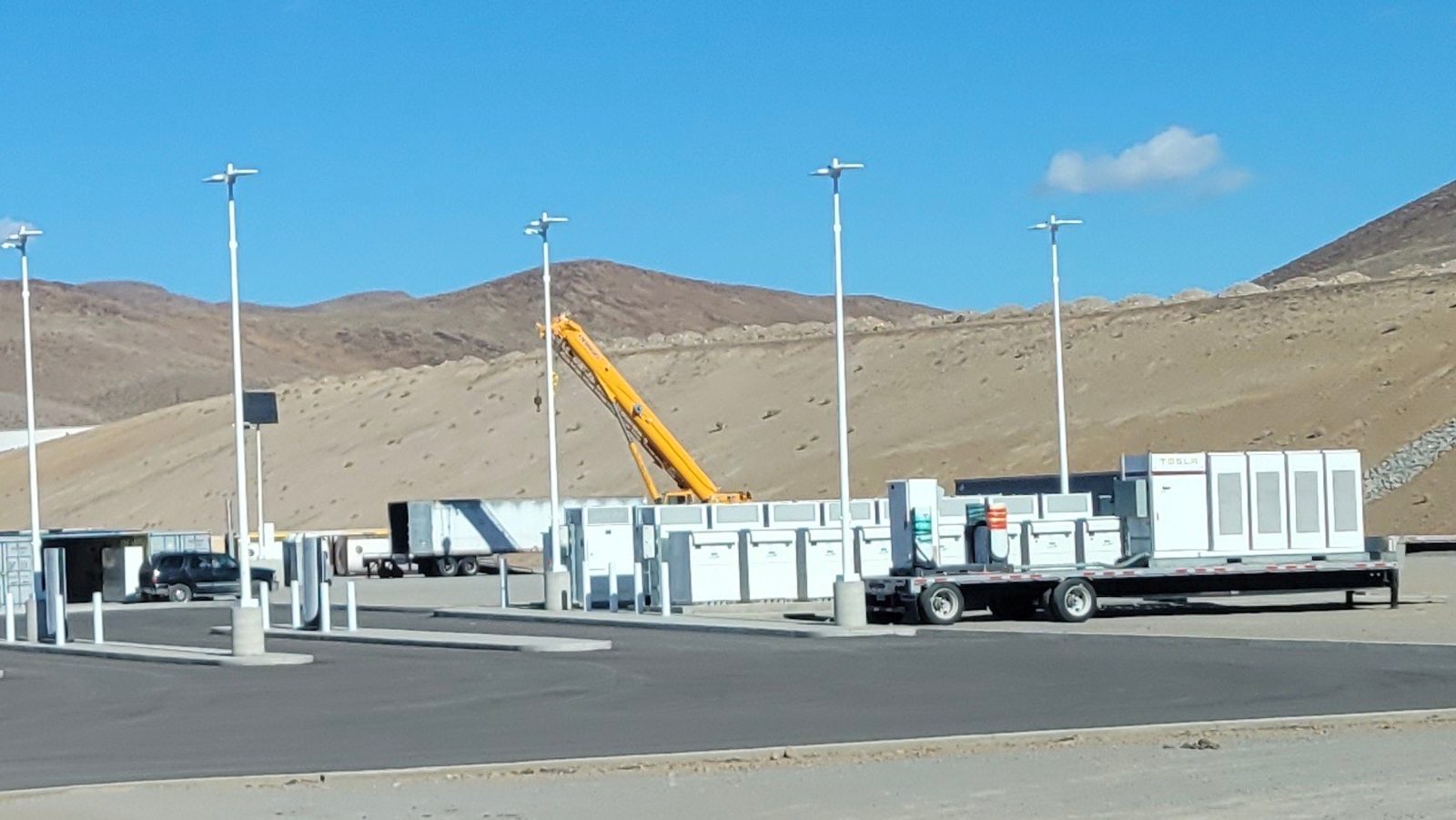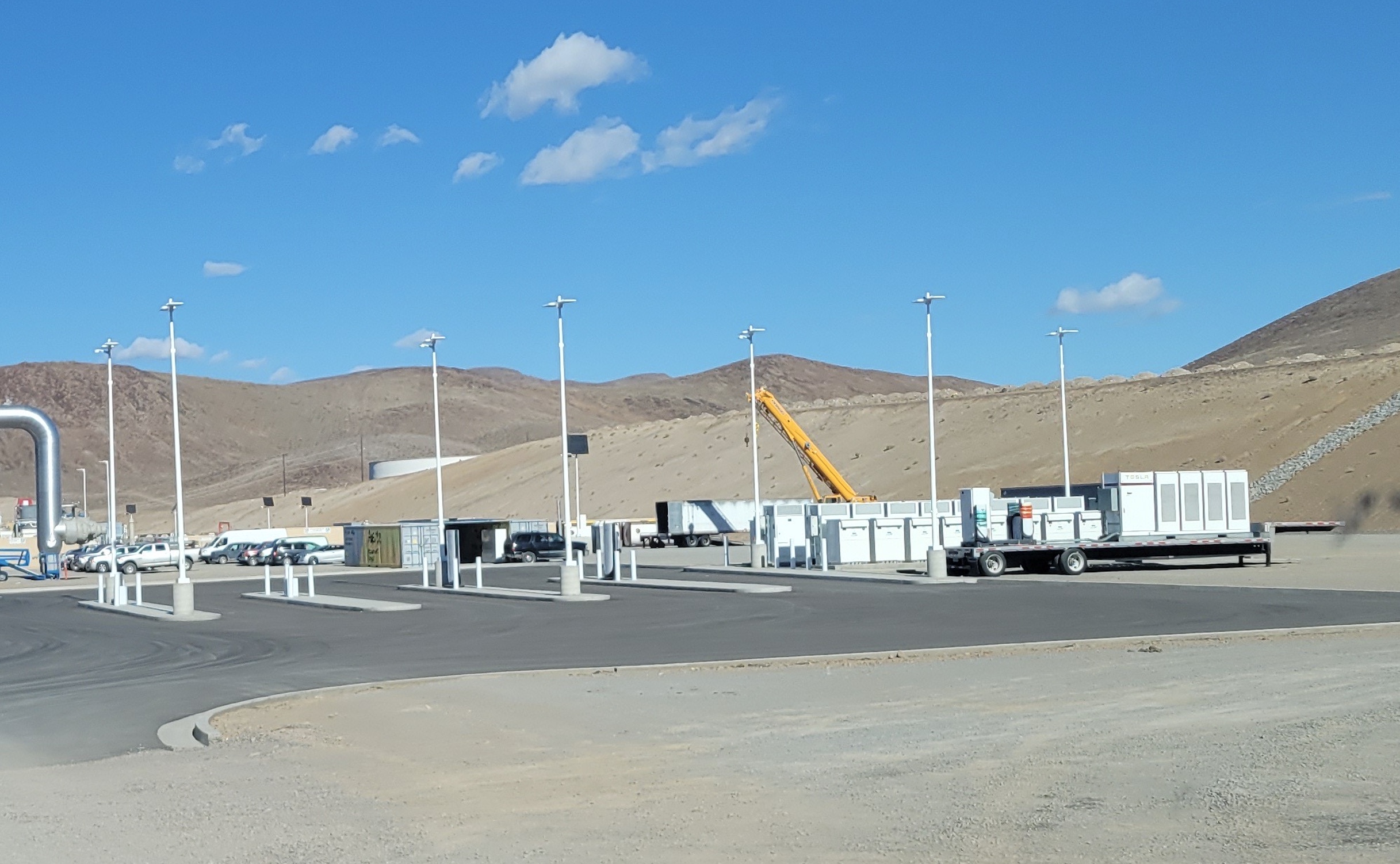
Tesla has been spotted using a mobile Powerpack battery system at its first Megacharger station for the Tesla Semi electric truck in Nevada.
The details of the charging solution are still unknown.
Last October, we reported that Tesla was finally deploying its first Megacharger station at Gigafactory Nevada to support its upcoming fleet of Tesla Semi electric trucks.
The automaker has been leading the way in terms of charging infrastructure for electric vehicles with its Supercharger network, but it won’t be able to support electric semi trucks.
It needs a new solution, and with the unveiling of the Tesla Semi in 2017, Tesla unveiled its plan to deploy “Megachargers,” a more powerful version of its Supercharger network that can add 400 miles of range in just 30 minutes.
This would require a charging capacity of over 1 MW or about four times the current top charging output of a Supercharger. Our calculations showed that it could be as high as 1.6 MW.
We don’t know the specs or any details of the Megacharger just yet as Tesla hasn’t commented on the first station deployed at Gigafactory Nevada.
But we have now received some new pictures of the Megacharger station from Jason Colepaugh that hint at an interesting aspect of the Megacharger.
Tesla was spotted using a mobile Powerpack battery system on a trailer at the Megacharger station:


While we can confirm what Tesla is doing with these Powerpacks, we believe the automaker is likely testing the energy storage system as a solution to the extremely expensive demand charges that will come with operating a charging system such as a Megacharger.
Demand charges are a higher rate that an electric utility charges when a user’s electricity needs a spike.
It can be extremely costly for electric vehicle charging networks considering the nature of their electricity needs – a station can see minimal use for most of the day and then have several EVs show up to charge at once.
Tesla has been known to deploy Powerpacks at some Supercharger stations to address the issue, and Electrify America has deployed Tesla Powerpacks at over 140 of its own charging stations for the same reason.
When first announcing the deal with Tesla, Giovanni Palazzo, president and chief executive officer at Electrify America, told us that some utilities will charge them as much as $30 to $40 per kW in demand charges.
Now, this is a problem for something like a Megacharger, which could see no use most of the day, and at one point, an electric truck stops by to charge at over 1 MW.
Instead, Tesla can use the grid or solar to slowly charge a Powerpack battery system and use it to shave some of the peak demand when a Tesla Semi stops by to charge.
It would certainly help the cost of charging those big electric trucks, but is it enough to deliver on Elon Musk’s previously announced guaranteed rate of $0.07 per kWh at Megachargers? Doubtful.
FTC: We use income earning auto affiliate links. More.






Comments